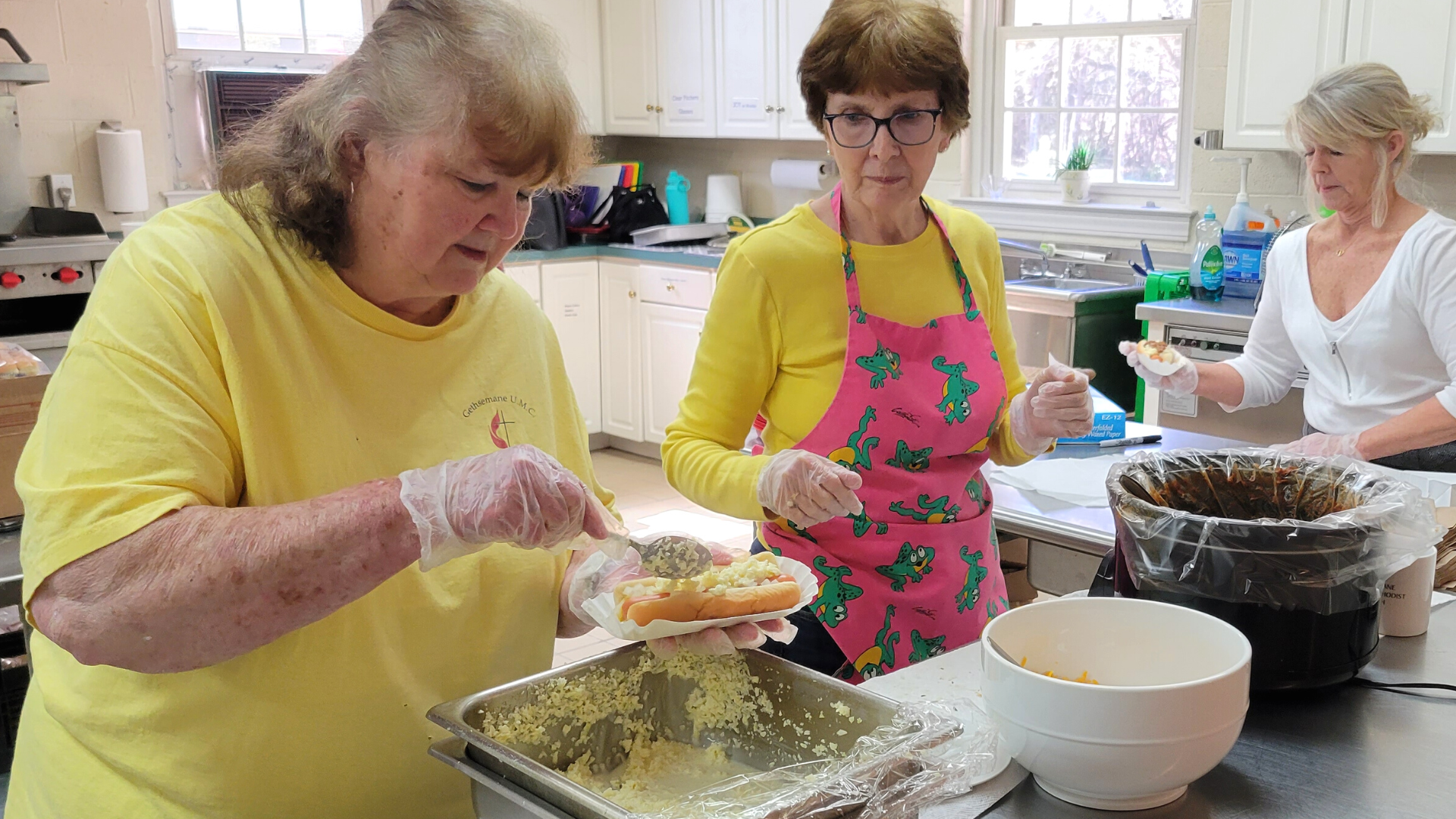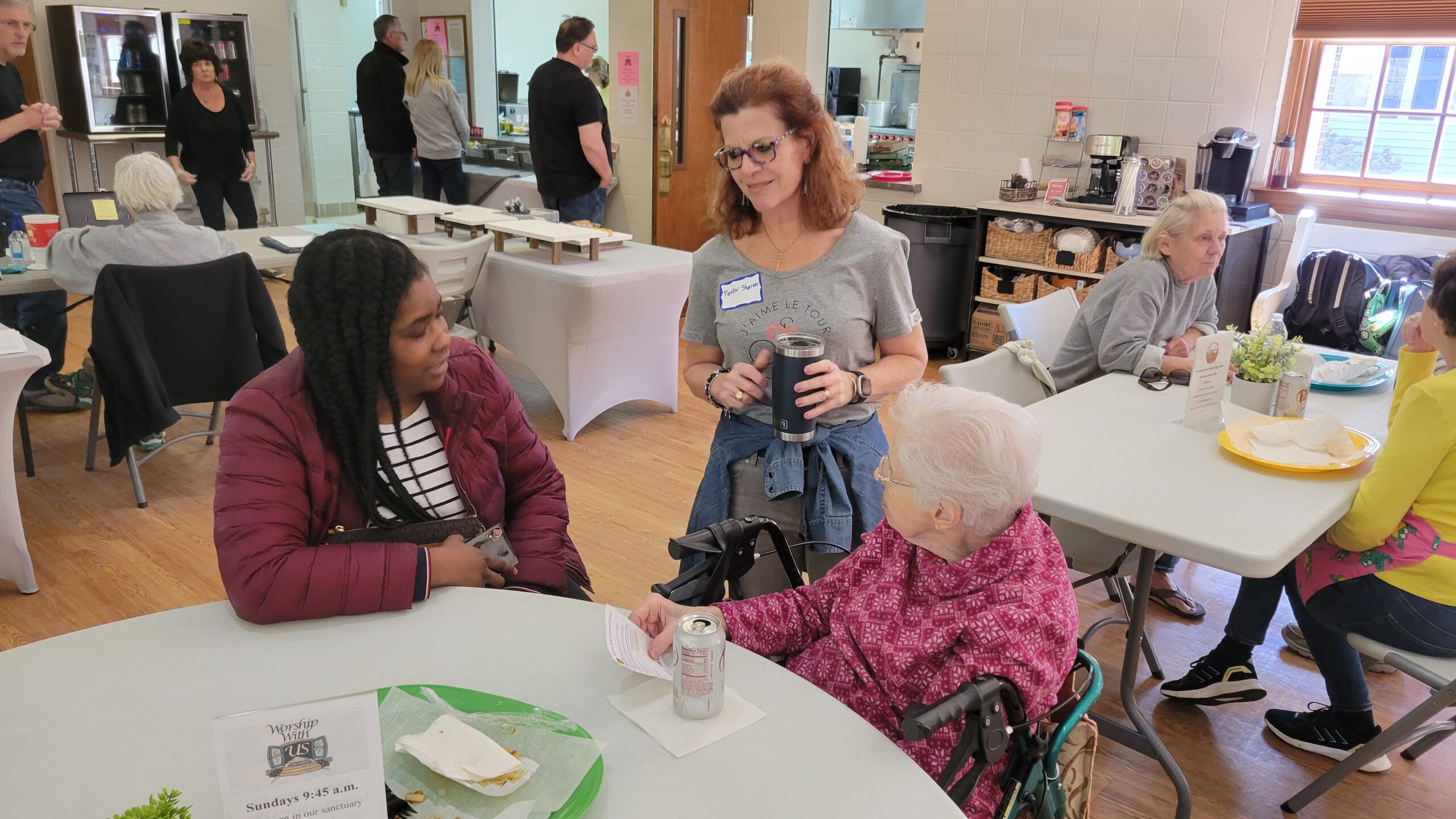
Over 20 years and far too many helpings of chili to count, the tradition has become the heart of Gethsemane’s identity. Crowds come for the hot dogs (and homemade desserts), but they also encounter a spirit of Christian hospitality.
“Our hot dog ministry speaks well of how we’re inviting all types of people,” said James Cottrell, a longtime member. “We don’t have a community center in Gethsemane. To me, it’s harder to see people. This is a place for people to come in and visit.”
No longer a country church
Gethsemane calls itself “the church on the corner” because of its location at N.C. 150 and Church Street, a juncture for communities in north Guilford County and southern Rockingham County.
As growth extends north from Greensboro, the area is seeing an influx of new people. Church leaders see hot dogs as a vessel for connection.
“Whether they attend another church or not, they’re part of our community…and we want them to know how much we love them,” says Pastor Sharon Lee.
The Foundation partners with Gethsemane by managing its investment in the Diversified Fund, one of four fund options that best matches the church’s goals and risk tolerance.
Halo value of rural churches
A new study finds that rural churches like Gethsemane are economic difference-makers for their communities.
Partners for Sacred Places, in partnership with The Duke Endowment and the UNC Charlotte Urban Institute, studied 87 congregations (including Gethsemane) over two years for a report called “The Economic Halo Effect of Rural United Methodist Churches in North Carolina.” The participating churches, on average, were responsible for more than $735,000 per year in economic impact in their local communities.
Congregations generate value because they spend locally and hire locally; they host events that bring people to the community who spend money there; they sacrificially share space in their buildings, at low cost or no cost; and they provide needed resources and services to the community.
The study found that Methodist churches are not just for Methodists alone. Seventy-two percent of those benefiting from programs housed in UMC churches are not members of those congregations. In effect, rural Methodist churches are de facto community centers, just like their sister churches in cities.
That’s certainly the case at Gethsemane, a small church with an outsized presence.
“A lot of our regulars come in every other week to see us,” said Lisa Clark, a volunteer on the hot dog crew. “But we marvel at how every Saturday that we’re open, we see new people. We’re here for everyone…. and you can get your hot dog any way you like it.”

Best wishes to a cherished colleague and friend
As she leaves the Foundation to move closer to family, Susan Cothern offers a word of thanks.
Board gives thanks for leadership, growth and fruitful ministry
There was a special tribute for outgoing board chair Anne Martin, whose steadying presence proved invaluable as the Foundation navigated post-pandemic recovery, disaffiliation and accompanying challenges.
Disciplined approach protects, grows your investment dollars
We are committed to maintaining discipline, balance, and, most importantly, a long-term focus in the decisions we make on your behalf.